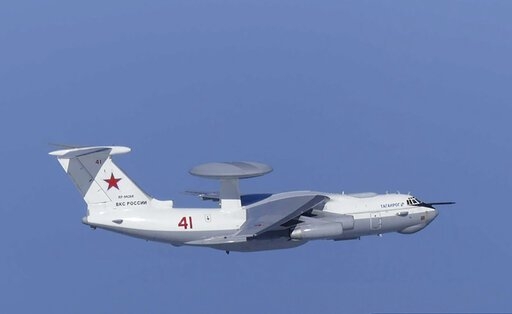Russia wants probe on alleged S Korean airspace violation

Russia wants an investigation into a South Korean announcement that one of its military planes violated South Korea's airspace, a senior lawmaker said Wednesday citing, Russia's acting ambassador.
Seoul said South Korean fighter jets fired 360 rounds of warning shots to drive away the Russian reconnaissance plane that entered its airspace off South Korea's east coast twice Tuesday during a joint patrol with Chinese bombers.
Yoon Sang-hyun, chairman of the South Korean parliament's Foreign Affairs Committee, quoted Russia's Acting Ambassador Maxim Volkov as telling him that Russia feels "regrettable" over the incident.
Yoon cited Volkov as saying Russia thinks an investigation was necessary and has requested related South Korean information.
Russia's Embassy in Seoul couldn't immediately confirm Volkov's reported comments.
Russia says two of its bombers were on a routine flight over neutral waters and didn't violate South Korea's airspace. Russia's Defense Ministry also denied that South Korean jets fired warning shots though said they flew close to the Russian planes in "unprofessional maneuvers."
South Korea said it was the first time a foreign military plane had violated its airspace since the end of the 1950-53 Korean War. The foreign and defense ministries on Tuesday summoned Volkov and Russia's deputy military attache in South Korea, Nikolai Marchenko, to register their complaints. They also summoned China's ambassador and the defense attache to protest Beijing's overflight.
According to South Korean accounts, the reconnaissance plane and two other Russian bombers entered South Korea's air defense identification zone earlier Tuesday together with two Chinese bombers. However, the zone is not considered a country's territorial sky and extends beyond it. It is meant to give authorities an early warning of a possible incursion.
China's Defense Ministry said Thursday that China and Russia carried out their first joint air patrol in Northeast Asia that "does not target any third party." Spokesman Wu Qian said in Beijing the two countries each sent two bombers for the patrols along established air routes and that they "didn't enter the territorial airspace of other countries."
The airspace that South Korea says the Russian reconnaissance plane entered is above a group of islets controlled by South Korea but also claimed by Japan. Japan subsequently protested both Russian and South Korean actions, according to Chief Cabinet Secretary Yoshihide Suga. He said in Tokyo that Japan urged Russia not to repeat its airspace violation.
South Korea said it cannot accept the Japanese statement because the islets belong to South Korea.
